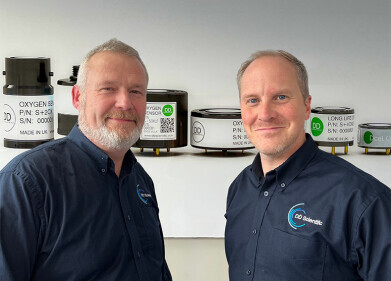Business News
Why Are Coastal Residents Suing Fuel Companies?
Aug 10 2017
Three small communities on the Californian coast have grabbed the headlines this month by announcing their decision to sue 37 of the biggest oil and gas companies around the world. Among those targeted are Exxon, Shell and Chevron, as well as many other big-name players in the fossil fuel industry.
Of course, fossil fuel giants have been attacked with litigation before – and have won all previous battles. The difference here, however, is that the two counties and one city are arguing not just that the 37 companies extracted the fuel that is responsible for climate change, but that they knew about the phenomenon over 40 years ago and actively worked to suppress that knowledge.
“Carbon majors” under attack
The city of Imperial Beach and the two counties of San Mateo and Marin County claim that collectively, the 37 companies are responsible for roughly 20% of all carbon emissions between 1965 and 2015.
Furthermore, they claim that these emissions have led directly to global warming, which will entail a minimum rise of sea levels around the world of 5.3m (17.4ft). This is predicted to cost Marin County alone a whopping $15.5 billion (£11.9 billion) over the next 15 years; as a low-income community, prosecutors argue that it shouldn’t be left up to the taxpayer to foot the bill alone.
Crucially, their case hinges on two specific terms, which are “failure to warn” and “design defect”. With Exxon conducting extensive research into climate change from the 1970s onwards, the communities allege that these companies knew about the disastrous effects that their business would have, did nothing to amend their techniques and actively worked to discredit the science behind manmade client change.
A powerful precedent
According to prominent environmental law firm ClientEarth – who have already won two legal battles against the UK government and are set to prosecute the Conservatives for a third time this year – the action could set a powerful precedent in the courts.
“This is an unprecedented moment for climate change litigation,” explained Sophie Marjanic in a statement on the firm’s website. “Multiple cases are being brought against Carbon Majors and governments worldwide. Climate change has real impacts that put people, communities and their homes at risk. Lawyers are finding new and fresh ways to address these harms that have the potential to force Carbon Majors to pay for the damage their products have contributed to.”
Of course, with the financial clout which the companies collectively hold, besting them in court will prove to be difficult. Not only do the communities need to prove that the activities of the carbon majors were instrumental in causing a specific hike in global temperatures, they also need to demonstrate that they knew about the science but tried their best to hide it from the public consciousness.
Whatever the result, the litigators involved are hoping that the court cases can set a useful precedent for future cases and can lead to a fresh approach to natural gas network surveys and to a remodelling of the fossil fuel industry in general.
Digital Edition
IET 34.2 March 2024
April 2024
Gas Detection - Biogas batch fermentation system for laboratory use with automatic gas analysis in real time Water/Wastewater - Upcycling sensors for sustainable nature management - Prist...
View all digital editions
Events
Apr 22 2024 Hannover, Germany
Apr 22 2024 Marrakech, Morroco
Apr 23 2024 Kuala Lumpur, Malaysia
Apr 23 2024 Kintex, South Korea
Apr 23 2024 Edmonton, AB, Canada



















